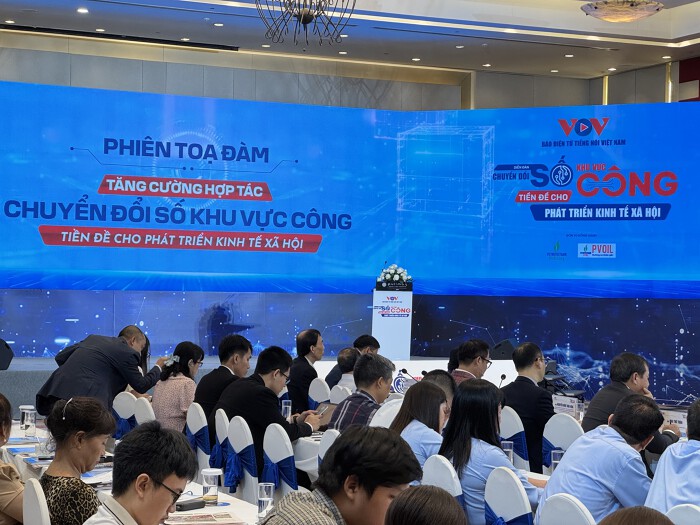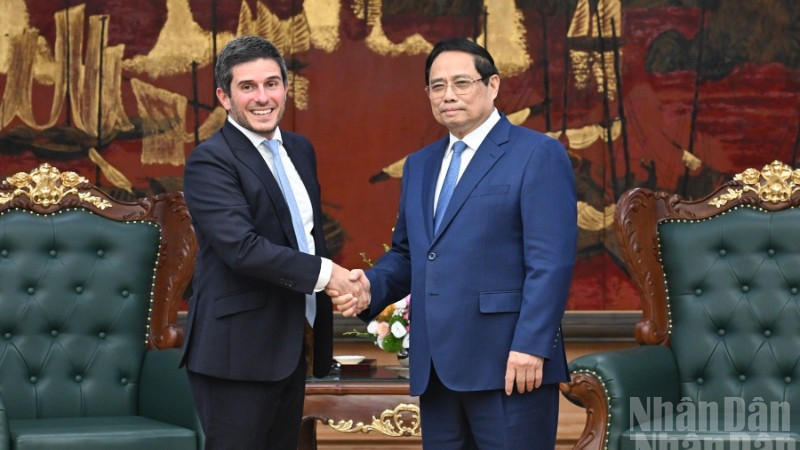OCB and Genesia Ventures co-host “Banking Innovation for Startups” to catalyze credit access for Vietnamese startups
Vietnam’s startup ecosystem is seeing a major shift in how young businesses access funding, thanks to a recent initiative led by OCB Bank and Genesia Ventures. On July 18, 2025, the two co-hosted the “Banking Innovation for Startups” conference in Ho Chi Minh City, aiming to unlock new credit pathways for early-stage companies. The event gathered stakeholders from finance, venture capital, and government to tackle one of the biggest hurdles startups face: getting loans without the burden of hard collateral. Instead of the traditional asset-based lending model, the new approach emphasizes a startup’s cash flow, business model, and the credibility of its founding team.

This move is backed by strategic partners like Japan’s Aozora Bank and aligns with Vietnam’s Resolution 68-NQ/TW, which promotes lending based on intangible assets. Notably, OCB is already piloting this approach by offering unsecured loans to startups like M Village, Buymed (Thuocsi), and Ecomobi, each demonstrating strong traction, scalable models, or IPO potential. The model creates a “win-win-win” triangle between banks, VCs, and startups: Genesia Ventures provides deal sourcing and post-investment support, while OCB handles flexible lending, ultimately making capital more accessible without requiring traditional security.
Overall, this marks a turning point in Vietnam’s innovation finance ecosystem. By shifting from “safe lending” to a trust- and vision-based model, OCB and Genesia Ventures are helping startups secure funding in a way that aligns with global practices. In a market where equity alone can’t meet capital demands, this venture-backed credit model could become a blueprint for other banks and investors across the region.
VNG invests in Founder Bui Sy Phong’s new game with a $200 million revenue goal
After the collapse of Telio in late 2024, a once-promising B2B e-commerce startup backed by global giants like Tiger Global and Granite Asia, Vietnamese tech giant VNG is doubling down on its support for founder Bui Sy Phong. Rather than walking away, VNG has chosen to invest in Bui Sy Phong’s new venture: Kronia, a game studio focused on developing premium PC and console titles for a global audience. This marks a notable strategic pivot for both parties: Phong is moving from e-commerce into gaming, while VNG is evolving from a game publisher into a creator of original intellectual property (IP).
Kronia’s debut project, codenamed “Project P,” is one of the most ambitious gaming endeavors ever launched by a Vietnamese studio. Backed by a $2.5 million development support package from VNG, not in cash, but through engineers, artists, and infrastructure, the game has a projected budget of $10-12 million and aims for a 2029 release. With a target of 4 million units sold in its first year, Project P reflects bold aspirations not just for Kronia, but for Vietnam’s gaming industry as a whole. Uniquely, Phong retains full creative control and IP ownership, a rare setup in Vietnam’s ecosystem, while VNG may provide additional equity investment tied to future performance.

This renewed partnership signals a broader shift in VNG’s strategy, as the company moves away from solely distributing global titles like League of Legends toward building homegrown gaming IP with international appeal. This story exemplifies the redemptive arc of a founder and the strategic boldness of VNG. It highlights how failure can fuel reinvention, and how calculated risk-taking by seasoned founders and forward-thinking investors could pave the way for Vietnam’s emergence in the global gaming scene.
Smart factories and smarter alliances: Vietnam–Taiwan deepen tech ties for regional growth
Vietnam is strengthening its position as a rising hub for tech innovation in Southeast Asia, as showcased at the Vietnam-Taiwan Tech Solution Day 2025 held in Ho Chi Minh City on July 15. Co-organized by Startup Island Taiwan, Vietnam’s National Innovation Center (NIC), FPT Smart Cloud, and Taiwan-based Digiwin, the event spotlighted scalable AI-powered solutions designed to transform manufacturing and enterprise operations. The gathering also served as a launchpad for deeper Vietnam-Taiwan collaboration in industrial AI, with both governments and startups aligning their efforts to accelerate innovation.
Taiwan, already Vietnam’s fourth-largest investor with over US$40.9 billion in cumulative FDI, is playing a key role in supporting Vietnam’s shift toward a tech-driven, green economy. This year’s Tech Solution Day highlighted that alignment, with a focus on priority sectors in Vietnam’s national development strategy, including electronics, semiconductors, renewable energy, and digital infrastructure. On the innovation front, startups from both countries showcased cutting-edge AI applications. From Taiwan, KKCompany introduced BlendVision, an AI-powered video platform; KDAN presented AI-based workflow and decision-making tools; AIWin offered a no-training-needed AI deployment system; and Infinitix featured its AI-Stack for optimized GPU usage and MLOps. On the Vietnamese side, LEXengine demonstrated its AI for legal document processing, while Flowmingo presented a smart recruitment platform connecting talent with over 3,000 companies.

The Vietnam–Taiwan Tech Solution Day 2025 highlights the powerful combination of regional cooperation, government support, and startup innovation driving AI-powered industrial transformation across Southeast Asia. This event aligns perfectly with Vietnam's national vision of becoming a tech-driven, green economy. Taiwan's deep tech expertise provides a significant boost to Vietnam's AI adoption efforts across various sectors. Through this strategic partnership, Vietnam moves closer to establishing itself as a regional hub for smart factories, AI integration, and digital innovation.
Challenges and opportunities for Vietnamese startups in the agricultural digital transformation era
Vietnam’s agriculture sector, though employing nearly 80% of the rural population, continues to lag behind in the country’s broader digital transformation push. Despite agriculture being a key pillar of the economy, it remains largely absent from major national digitalization strategies. This gap between policy and real-world execution has exposed serious issues: local infrastructure remains underdeveloped, grassroots officials often lack the digital skills needed to implement tech solutions, and there’s a mismatch between fast-moving technologies and policy maturity and governance system. A clear example is Vietnam’s QR code rollout, which failed in many areas due to incompatible scanners at local government offices.

Yet, these challenges also open the door to a wave of opportunity for Vietnamese AgriTech startups. Companies like Techcoop, FoodMap, Tepbac, Cricket One, and Révi Coffee & Tea,… are beginning to tackle issues in supply chain transparency, smart financing, and rural connectivity. What’s needed now is a shift in how success is measured, from institutional checkboxes to real outcomes for farmers and communities.
As more venture capital flows into AgriTech and government policy starts to recognize the sector’s potential, agriculture could become a surprising but powerful driver of Vietnam’s next wave of digital innovation if startups and local authorities can bridge the execution gap.
Vietnam's agricultural sector faces a pivotal moment. Despite national digitalization efforts, agriculture remains neglected in digital strategies. This policy-execution gap creates both challenges and opportunities. For AgriTech startups, these pain points offer innovation spaces in supply chain transparency, data-driven financing, and rural digitization. With growing VC interest and policy shifts toward agricultural modernization, this sector could become a transformative frontier in Vietnam's digital landscape if execution challenges are addressed.
Vietnam outlines financial reforms in push for emerging market status
Vietnam is taking bold steps to upgrade its financial standing, aiming to move from a frontier market to a secondary emerging market in the FTSE Russell classification. If successful, this reclassification could attract up to $5 billion in new foreign investment. The government has laid out a four-phase reform roadmap that runs through 2027, introducing legal and structural changes to align with more advanced financial systems. A key milestone is the establishment of a Central Counterparty (CCP) under the Vietnam Securities Depository and Clearing Corporation. This intermediary will help reduce risks in equity trading by ensuring transactions are finalized even if one party defaults, boosting trust and market integrity.

Several regulatory improvements have already been implemented, including the removal of the pre-funding requirement for foreign investors and the upgrading of transaction settlement systems. These changes are designed to eliminate longstanding barriers to foreign participation. With a current market capitalization of $245 billion, still trailing behind regional peers like Thailand ($455B) and Singapore (~$490B), Vietnam sees significant upside if its capital market status is elevated. Momentum is building: following positive trade agreement news with the U.S., the VN-Index surged 7.22%, signaling growing investor confidence. FTSE Russell is expected to review Vietnam’s status in September 2025, with potential reclassification 6–12 months afterward.
Vietnam’s reform roadmap is both strategic and investor-focused. Beyond attracting foreign capital, it reflects the country’s commitment to modernize its financial infrastructure and integrate more deeply with global markets. For the startup ecosystem, this move could lead to increased interest from international investors and higher exit valuations. Indirectly, startups may also benefit from more mature capital markets, improved liquidity, and greater access to growth-stage financing. If reforms stay on track, this could be a defining shift in how capital flows into Vietnam’s innovation economy.
Genesia Ventures is an early-stage venture capital firm operating in Japan and Southeast Asia, with a strong belief in the long-term potential of Vietnam’s digital economy. Beyond providing capital, the fund actively supports startups through strategic guidance and connections to a broader regional network.
